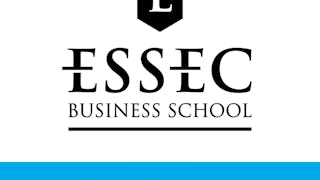In this course, participants are introduced to key notions and concepts evolving in sustainability science that are relevant to all, independent to one's work or field of interest. After having completed the course, participants will have a better understanding of the vocabulary used today and should demonstrate the ability to reflect critically to integrate different perspectives of environmental, social, and economic sustainability to their specific area of interest or research.

Cultivate your career with expert-led programs, job-ready certificates, and 10,000 ways to grow. All for $25/month, billed annually. Save now


Working for a sustainable future: concepts and approaches



Instructors: Mine Islar
7,517 already enrolled
Included with 
(120 reviews)
Recommended experience
Skills you'll gain
Details to know

Add to your LinkedIn profile
5 assignments
See how employees at top companies are mastering in-demand skills


Earn a career certificate
Add this credential to your LinkedIn profile, resume, or CV
Share it on social media and in your performance review

There are 5 modules in this course
The first module presents essential concepts within sustainability science, and methods used to describe, frame and communicate aspects of sustainability. We look at key questions such as what we mean with strong or weak sustainability, resilience, tipping points and the notion of planetary boundaries. We also look at some techniques used of envisioning alternative futures and transitions pathways.
What's included
9 videos9 readings1 assignment3 plugins
The second module is all about systems thinking and how systemic approaches are applied today to achieve long-term sustainability goals. Your will see what we mean with systems thinking and how systems thinking and design is applied in practice to find new solutions.
What's included
6 videos4 readings1 assignment2 plugins
The third module touches upon drivers for a sustainable future, namely links to economy and businesses with an introduction to notions of a circular economy, and also policy and regulatory frameworks. Your will learn the basics of transformative policy frames and how they are designed and applied through a number of real-case examples.
What's included
11 videos2 readings1 assignment
This module discusses the links between innovation and sustainability, highlighting approaches for technological, social, institutional and financial innovations. Some examples, or cases, aim to show how different actors across society balance in practice the need for innovative approaches for social, environmental and economic sustainability.
What's included
9 videos3 readings1 assignment
The fifth and last module provides general insights on how we work with models to create various scenarios that help us identify solutions and pathways for a more sustainable world. Three main dimensions are addressed namely climate and climate change, nature and biodiversity, and the importance of data and geodata science to support spatial planning and sustainable landuse.
What's included
5 videos3 readings1 assignment
Instructors


Offered by
Recommended if you're interested in Environmental Science and Sustainability


University of Copenhagen


ESSEC Business School


University of Illinois Urbana-Champaign
Why people choose Coursera for their career




Learner reviews
120 reviews
- 5 stars
76.66%
- 4 stars
19.16%
- 3 stars
3.33%
- 2 stars
0%
- 1 star
0.83%
Showing 3 of 120
Reviewed on Oct 29, 2024
Focuses on the environment, but neglects economy and society.
Reviewed on Mar 21, 2024
Great varied and comprehensive content - struggled a bit with the spoken English.
Reviewed on Jul 22, 2022
This course was easy to follow and interesting enough to keep me engaged.

Open new doors with Coursera Plus
Unlimited access to 10,000+ world-class courses, hands-on projects, and job-ready certificate programs - all included in your subscription
Advance your career with an online degree
Earn a degree from world-class universities - 100% online
Join over 3,400 global companies that choose Coursera for Business
Upskill your employees to excel in the digital economy
Frequently asked questions
Access to lectures and assignments depends on your type of enrollment. If you take a course in audit mode, you will be able to see most course materials for free. To access graded assignments and to earn a Certificate, you will need to purchase the Certificate experience, during or after your audit. If you don't see the audit option:
The course may not offer an audit option. You can try a Free Trial instead, or apply for Financial Aid.
The course may offer 'Full Course, No Certificate' instead. This option lets you see all course materials, submit required assessments, and get a final grade. This also means that you will not be able to purchase a Certificate experience.
When you purchase a Certificate you get access to all course materials, including graded assignments. Upon completing the course, your electronic Certificate will be added to your Accomplishments page - from there, you can print your Certificate or add it to your LinkedIn profile. If you only want to read and view the course content, you can audit the course for free.
You will be eligible for a full refund until two weeks after your payment date, or (for courses that have just launched) until two weeks after the first session of the course begins, whichever is later. You cannot receive a refund once you’ve earned a Course Certificate, even if you complete the course within the two-week refund period. See our full refund policy.
More questions
Financial aid available,











